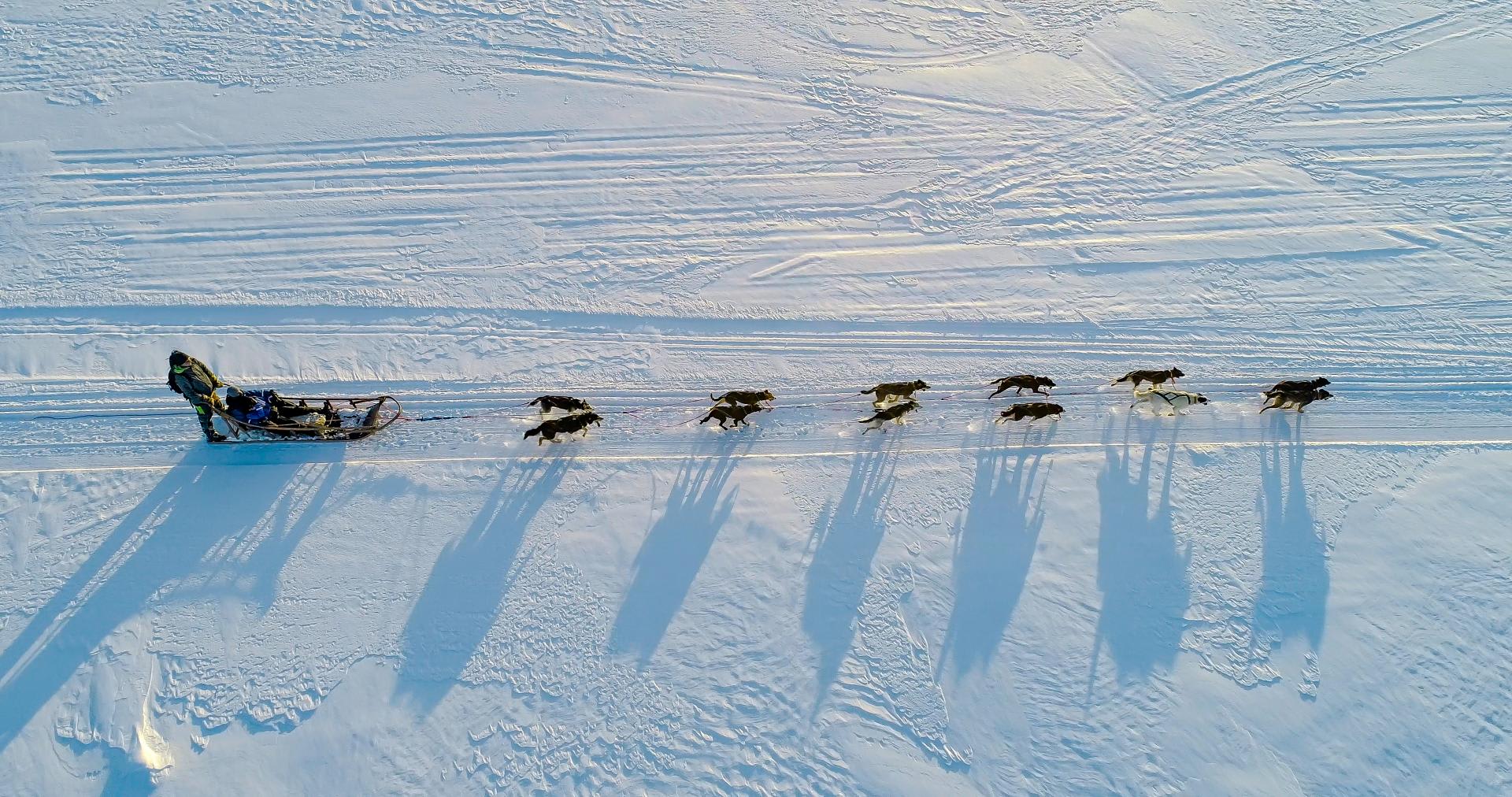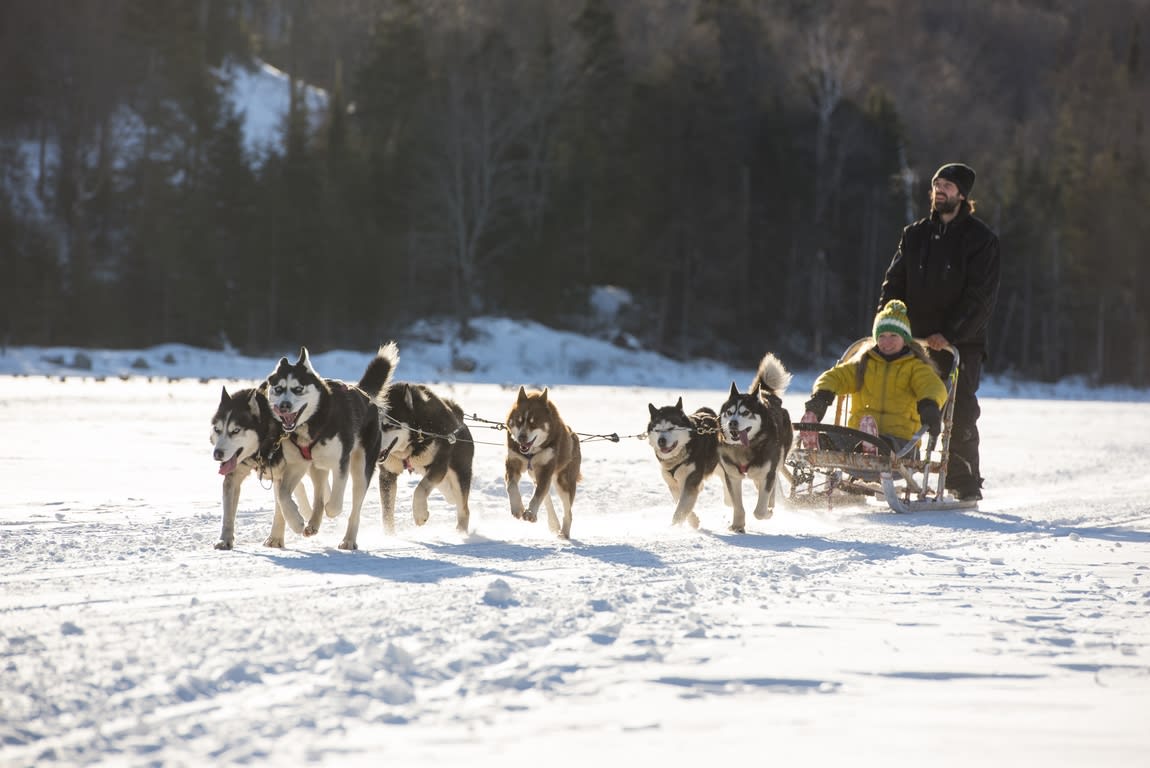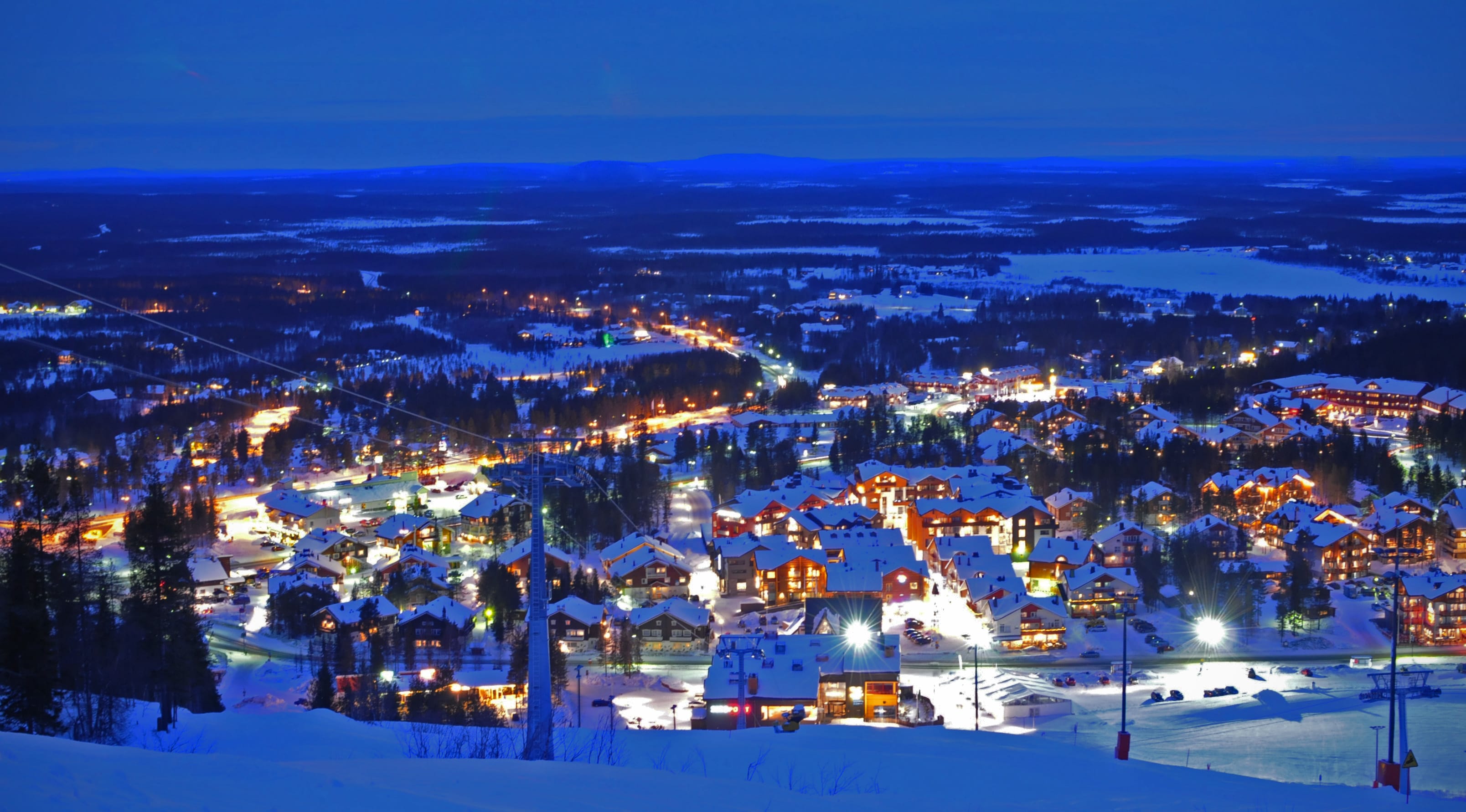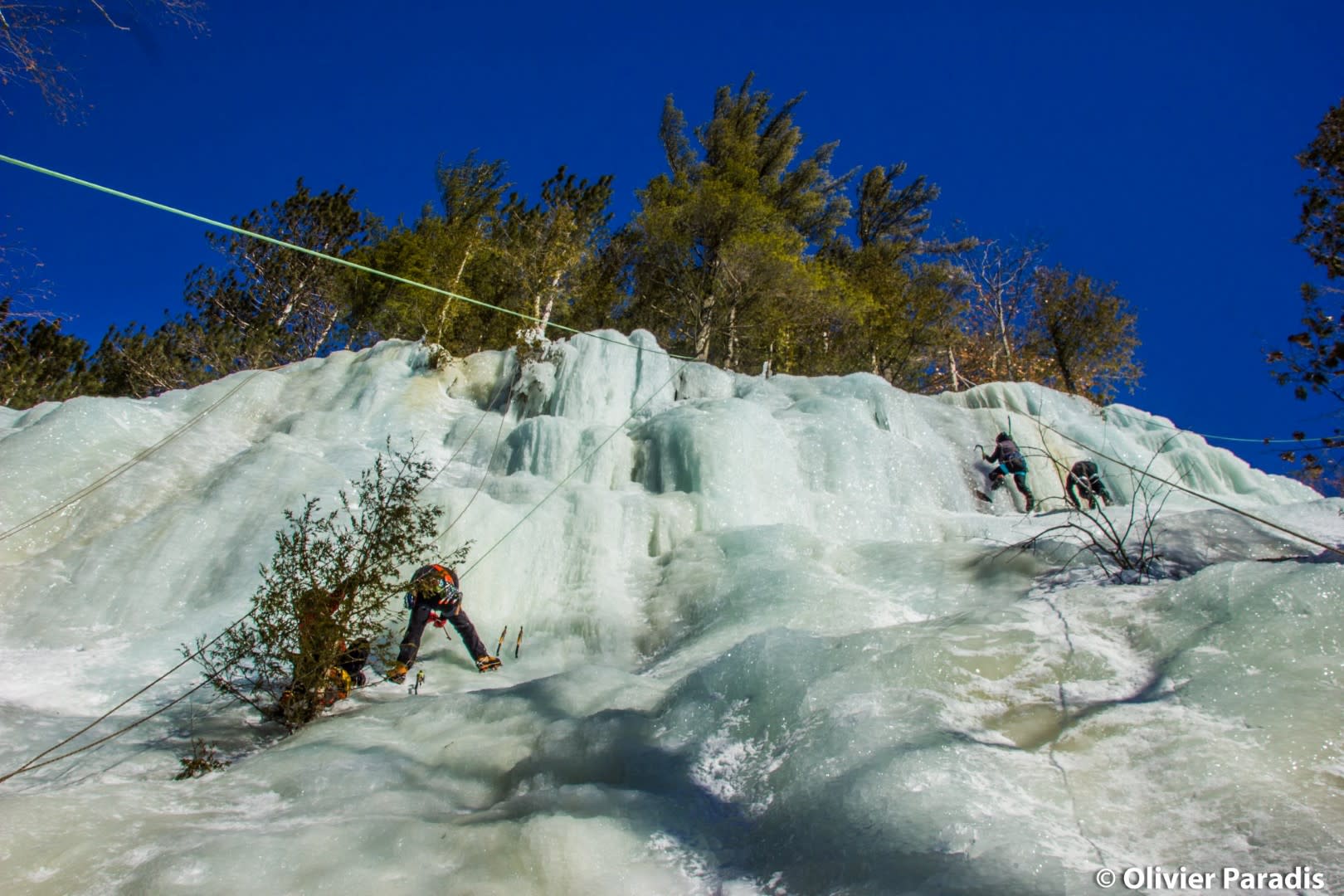Dog sledding: all destinations
199 activities available

Dog Sledding: The Ultimate Winter Adventure Experience
Introduction to Dog Sledding
Dog sledding, or mushing, is one of the most exhilarating and unique ways to experience the winter wilderness. Whether you're gliding across vast snow-covered plains or winding through dense, snowy forests, dog sledding offers a thrilling combination of adventure, nature, and the special bond between humans and animals. This ancient mode of transport has evolved into a popular outdoor activity that allows beginners and seasoned adventurers alike to connect with nature and enjoy breathtaking winter landscapes. Accessible to everyone, even first-timers, dog sledding is a bucket-list experience that combines adventure with the serene beauty of nature.
History and Origins of Dog Sledding
Dog sledding dates back over a thousand years, originating among the native peoples of the Arctic regions. The Inuits, Chukchi, and other indigenous groups of Siberia, Greenland, and North America used dogs to transport goods and people across snow-covered landscapes long before the invention of modern vehicles. The domestication of dogs for sledding purposes is believed to have begun around 1000 AD, when the Chukchi people, living in what is now Russia, began breeding dogs to pull sleds.
Throughout the 19th and early 20th centuries, dog sledding played a crucial role in exploration and transportation in polar regions. Notable explorers like Roald Amundsen and Robert Peary used dog sled teams to navigate treacherous terrain during their expeditions to the South and North Poles, respectively. The sport gained further international recognition during the famous 1925 Serum Run to Nome, where sled dogs raced to deliver life-saving medicine to the isolated town of Nome, Alaska, during a deadly diphtheria outbreak. This event is commemorated every year in the Iditarod, one of the most famous dog sled races in the world.
Today, dog sledding has evolved from a necessity to an adventurous sport, attracting outdoor enthusiasts worldwide who seek to experience the thrill of working with a team of energetic dogs while exploring some of the most remote and stunning winter landscapes.
Types of Dog Sledding Experiences
Dog sledding comes in various forms, each offering a unique experience depending on your level of expertise, location, and the type of adventure you seek. Here are some of the most popular types:
Recreational Dog Sledding
Ideal for beginners and families, recreational dog sledding is a gentle introduction to the sport. Typically, these outings last a few hours, during which you’ll ride as a passenger while a professional musher handles the team. These excursions focus on enjoying the scenic beauty of the area and interacting with the dogs.
Self-Driving (Mushing)
For those looking to be more hands-on, self-driving or "mushing" offers the chance to take the reins yourself. After some basic training, you'll guide your own sled and team of dogs through the wilderness, under the watchful eye of a guide. This is an exciting option for those who want to feel the full thrill of commanding a dog sled.
Multi-Day Expeditions
For adventurers seeking a deeper connection with nature, multi-day dog sledding expeditions provide an immersive experience. These trips take participants through rugged, untouched landscapes, often camping overnight in the wilderness. You’ll have the opportunity to bond with your sled team and develop your mushing skills over several days.
Racing
Competitive dog sledding, or sled dog racing, is a high-intensity sport that attracts professional mushers from around the world. Races like the Iditarod in Alaska or the Yukon Quest in Canada are gruelling multi-day events that push both dogs and mushers to their limits, covering hundreds of miles through extreme weather conditions.
Each of these experiences can be adapted to your skill level and sense of adventure, making dog sledding an accessible activity for almost anyone.
Essential Equipment for Dog Sledding
Dog sledding requires specific equipment, both for the safety and comfort of the dogs and the mushers. Here’s a breakdown of the essential gear:
Sled
The sled is the most recognizable piece of equipment in dog sledding. Typically made of lightweight materials like wood or aluminium, sleds are designed for speed and durability. Recreational sleds are often larger and built for comfort, whereas racing sleds are smaller and more streamlined.
Dog Harnesses
Each dog wears a harness designed to distribute the weight of the sled evenly across its body. These harnesses are crucial for the dogs' comfort and ability to pull efficiently without strain or injury. Mushers ensure that the harnesses are fitted correctly to prevent chafing and discomfort.
Gangline
The gangline is the main line that connects the dogs to the sled. It's made of strong, durable material, usually polypropylene or steel cables, and includes individual lines for each dog. The gangline is key to keeping the team organized and moving in unison.
Booties for Dogs
To protect the dogs' paws from ice, snow, and rough terrain, mushers use special booties. These lightweight, durable booties help prevent injuries and keep the dogs comfortable on long runs.
Snow Gear for Mushers
Mushers need to be well-equipped to handle cold, windy conditions. A high-quality winter jacket, insulated pants, waterproof gloves, and thermal layers are essential. Footwear is particularly important, with most mushers opting for insulated, waterproof boots that provide both warmth and stability on icy surfaces.
Safety Equipment
Safety gear, such as helmets, goggles, and headlamps, may be necessary, especially during racing or on longer expeditions. Mushers also carry emergency supplies, including first aid kits, extra food for the dogs, and repair kits for the sled.
Choosing the right equipment is vital to ensuring a safe and enjoyable experience. For beginners, most tour operators will provide the necessary gear, making it easy to jump into the sport with confidence.
Top Dog Sledding Locations Worldwide
Dog sledding is popular in many parts of the world where snow-covered landscapes stretch as far as the eye can see. Here are some of the top destinations for dog sledding, from the Arctic Circle to the high mountains of Europe.
Alaska, USA
Alaska is synonymous with dog sledding, and for good reason. The vast, untamed wilderness offers some of the best trails for both beginners and experienced mushers. From Anchorage to Denali National Park, Alaska is home to world-class dog sledding experiences. Visitors can even ride sections of the famed Iditarod Trail.
Norway
The snowy expanses of Norway provide a stunning backdrop for dog sledding. Adventurers can explore the scenic fjords, majestic mountains, and the pristine beauty of the Arctic regions like Tromsø or Finnmark. For those lucky enough, the Northern Lights might make an appearance, adding an extra layer of magic to the experience.
Sweden
In Swedish Lapland, dog sledding is an integral part of the culture. Kiruna, Abisko, and Jokkmokk are some of the best places to embark on an unforgettable sledding adventure. The vast wilderness and frozen lakes provide the perfect terrain for multi-day expeditions.
Canada
With its vast wilderness and subarctic conditions, Canada is another prime destination for dog sledding. The Yukon Territory and the Northwest Territories offer incredible expeditions that take you deep into the heart of nature. Quebec and Alberta also have numerous operators offering thrilling day trips and multi-day journeys.
Greenland
For a truly off-the-beaten-path adventure, Greenland offers remote and rugged dog sledding opportunities. Traditional sledding is still used by hunters in some regions, providing an authentic glimpse into the ancient lifestyle. Exploring the icy landscapes of Greenland on a sled is an experience unlike any other.
France (Alps)
The French Alps may be more famous for skiing, but they also offer incredible dog sledding experiences. Popular spots like Chamonix and Megève allow visitors to enjoy this winter activity while taking in the breathtaking views of the Mont Blanc massif.
Wherever you choose to go, dog sledding offers a unique way to explore some of the world’s most beautiful winter landscapes.
Technical Vocabulary and Terms
Dog sledding, like many sports, has its own specialized vocabulary. Here are some common terms to help you understand the basics:
Mushing: The act of driving a dog sled.
Lead Dog: The dog (or pair of dogs) that leads the team and follows the musher's commands.
Wheel Dog: The dog positioned closest to the sled, responsible for steering and pulling the sled’s weight.
Gangline: The main line that connects the dogs to the sled.
Gee and Haw: Traditional mushing commands, with "gee" meaning right and "haw" meaning left.
Team: The group of dogs working together to pull the sled.
Understanding these terms will help you better communicate with your musher or even take on the role yourself during your dog sledding adventure.
Benefits of Dog Sledding
Dog sledding offers a variety of physical, mental, and emotional benefits. Here are a few reasons why this sport is so rewarding:
Physical Fitness
Mushing requires strength, balance, and endurance. Whether you’re riding as a passenger or guiding the sled yourself, you’ll engage your core and legs as you navigate the snowy terrain. Additionally, being outdoors in cold weather burns more calories, providing a full-body workout.
Mental Wellbeing
Spending time in nature has been shown to reduce stress and improve mental clarity. Dog sledding provides a unique opportunity to disconnect from the hustle and bustle of everyday life and fully immerse yourself in the natural world.
Bonding with Animals
One of the most rewarding aspects of dog sledding is the bond that forms between the musher and the dogs. These animals are highly intelligent, energetic, and loyal, making the experience of working together incredibly fulfilling.
Adventure and Exploration
Dog sledding allows you to access remote areas that would be difficult to reach otherwise. Whether you're in the Arctic tundra or the snow-covered forests of Scandinavia, this sport offers a unique way to explore nature’s beauty.
Tips for Getting Started
If you're ready to give dog sledding a try, here are some tips to help you prepare:
Dress Warmly
Proper clothing is essential. Dress in layers, and make sure you have a high-quality winter jacket, insulated gloves, and waterproof boots. Avoid cotton, as it doesn’t insulate well when wet.
Listen to Your Guide
Whether you’re mushing or riding as a passenger, listen carefully to your guide’s instructions. They’ll teach you how to communicate with the dogs and keep you safe on the trail.
Stay Relaxed
If you’re nervous, remember that the dogs are well-trained and used to working with beginners. Stay calm and enjoy the ride—dog sledding is meant to be fun!
Book with a Reputable Provider
For a safe and enjoyable experience, it’s essential to book with a reputable provider. Manawa offers a variety of dog sledding experiences around the world, ensuring that you’ll have professional guides and well-cared-for dogs.
Book your dog sledding adventure
Dog sledding is much more than just a winter activity—it's an unforgettable adventure that connects you with nature, animals, and the rich history of Arctic exploration. Whether you're looking for a peaceful ride through snow-covered forests or an exhilarating multi-day expedition in remote wilderness, dog sledding offers a truly unique way to experience the beauty of winter landscapes. With options for all skill levels, from beginners to experienced mushers, this activity promises both thrills and serenity.
Ready to embark on this incredible journey? Book your dog sledding adventure through Manawa today, and let the call of the wild lead you to a one-of-a-kind experience you'll treasure for a lifetime!





